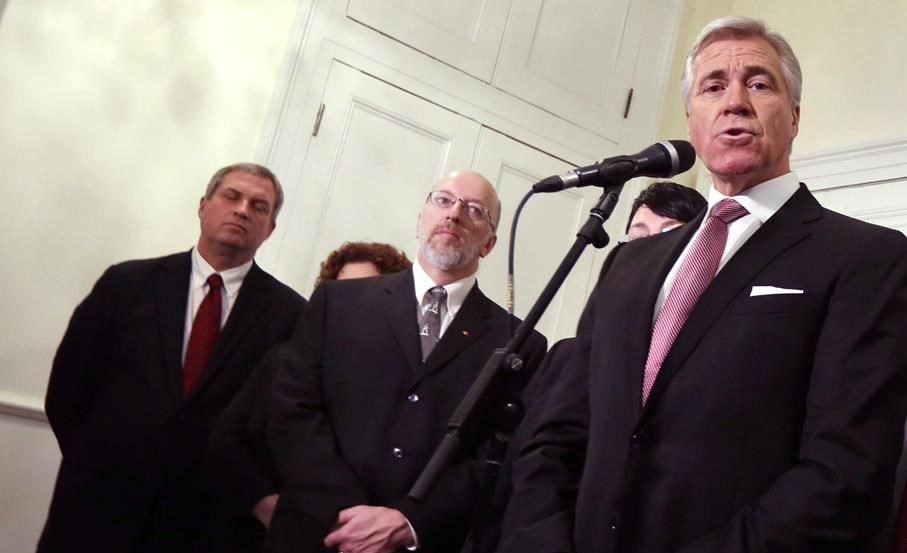A central Labrador town has a pressing homelessness problem and it won’t be solved until the district’s legislature member is replaced by someone who understands Indigenous issues, Labrador’s Innu Nation says.

Innu leaders are demanding Newfoundland and Labrador Premier Andrew Furey remove Lake Melville member Perry Trimper from the Liberal caucus after he made comments suggesting homeless people in Happy Valley-Goose Bay choose their lifestyles. They also want Trimper to resign his seat.
As of Tuesday morning, Trimper said he would not run again but he plans to remain in office until the next provincial election. In a statement Tuesday evening, Furey said he’d met with Innu Nation Grand Chief Etienne Rich and discussed “moving forward with cultural sensitivity training throughout government.”
Deputy Grand Chief Mary Ann Nui said Trimper’s comment shows he doesn’t understand the issues facing Innu in Labrador, who she says are disproportionately represented among the homeless and transient population in Happy Valley-Goose Bay.
“I would love to see somebody who can be in that seat who can work with us and understand the social problems we face in our own communities and why (people from) our communities end up in the streets in Goose Bay,” Nui said in an interview Tuesday.
Trimper’s controversial comment, made during a CBC interview, was in reference to a video shared on social media showing a handcuffed and homeless Inuk man being thrown to the ground by a Happy Valley-Goose Bay enforcement officer. The video has shone a floodlight on the town’s homelessness problem.
Michelle Kinney says the attention is sorely needed, especially now because the COVID-19 pandemic has exacerbated the issue. Kinney is the deputy minister of health and social development with the Nunatsiavut Government, Labrador’s Inuit government. She also runs the Happy Valley-Goose Bay homeless shelter.
“We’re definitely not meeting all of the needs,” Kinney said in a recent interview.
In a town of about 8,000 people, the eight-bed shelter is regularly bursting at the seams, she said. A clause in the shelter’s operation agreement allows them to exceed capacity in emergency situations, and they exceed it most nights. Sometimes as many as 17 people sleep there, she said.
The shelter also operates 10 communal units and seven apartments, all consistently full. There are 22 names on the wait-list, she said.

To maintain social distancing during the pandemic, the provincial government has paid for overflow shelter clients to sleep at a nearby hotel. There are currently seven people staying there, Kinney said.
The homelessness problem in Happy Valley-Goose Bay stems from its status as a regional hub without adequate housing. People from other Labrador towns go there for health or government services and wind up staying, sometimes without a place to live. This creates a transient population who sometimes camp out in the woods behind the town, she said.
In the town itself, the rental market is mostly aimed at people making good salaries at the nearby Muskrat Falls construction site, and rents are unaffordable on lower incomes, Kinney said.
Like Nui, she says Indigenous people are disproportionately affected. Nui said people with addictions issues from Labrador’s Innu communities often wind up in Happy Valley-Goose Bay because it’s easier to obtain drugs and alcohol there.
Nui said she’d love to see more housing and support options for the town’s homeless and transient population, as well as more collaboration between government departments and Indigenous groups.
“I would totally support a bigger shelter,” Nui said. “It would help a lot with our community members.”
But she fears the right help won’t come unless the people in power understand how systemic racism affects Indigenous people. Pointing to an audio recording released last year in which Trimper was heard saying the Innu are prone to playing “the race card,” Nui said Trimper’s latest gaffe shows he hasn’t learned anything.
“We need somebody in that seat that can work with Innu,” she said.
This report by The Canadian Press was first published Oct. 27, 2020.




Comments